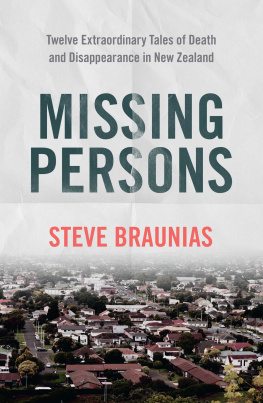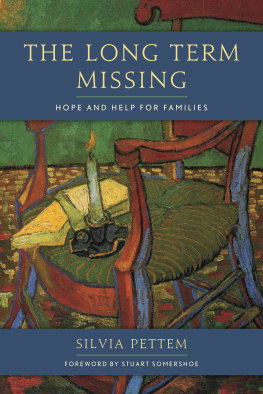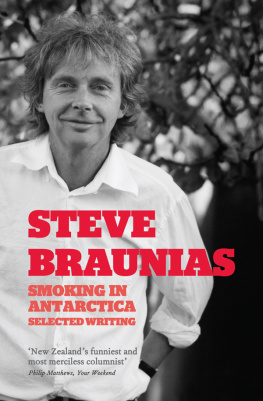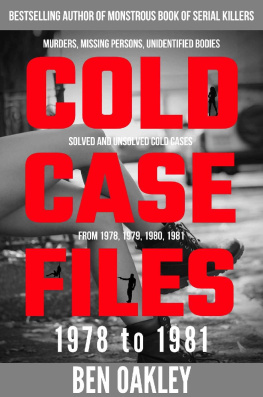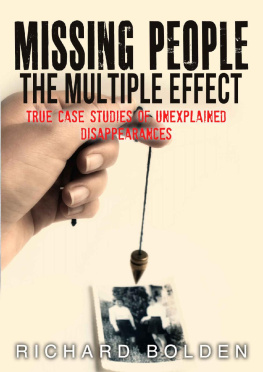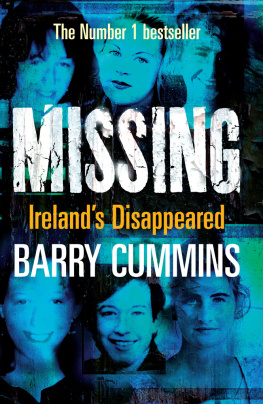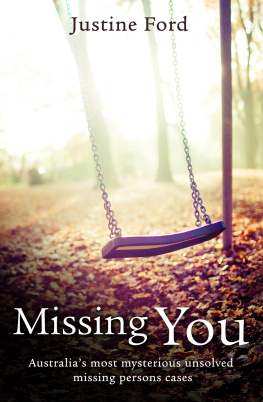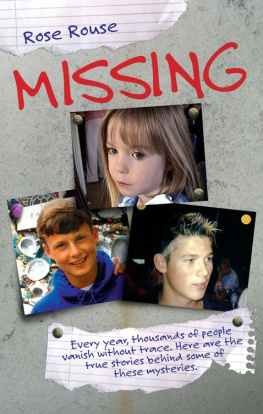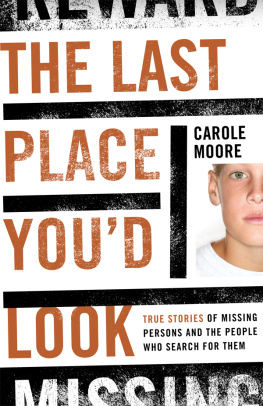Braunias - Missing Persons
Here you can read online Braunias - Missing Persons full text of the book (entire story) in english for free. Download pdf and epub, get meaning, cover and reviews about this ebook. year: 2021, publisher: HarperCollins, genre: Detective and thriller. Description of the work, (preface) as well as reviews are available. Best literature library LitArk.com created for fans of good reading and offers a wide selection of genres:
Romance novel
Science fiction
Adventure
Detective
Science
History
Home and family
Prose
Art
Politics
Computer
Non-fiction
Religion
Business
Children
Humor
Choose a favorite category and find really read worthwhile books. Enjoy immersion in the world of imagination, feel the emotions of the characters or learn something new for yourself, make an fascinating discovery.
- Book:Missing Persons
- Author:
- Publisher:HarperCollins
- Genre:
- Year:2021
- Rating:3 / 5
- Favourites:Add to favourites
- Your mark:
- 60
- 1
- 2
- 3
- 4
- 5
Missing Persons: summary, description and annotation
We offer to read an annotation, description, summary or preface (depends on what the author of the book "Missing Persons" wrote himself). If you haven't found the necessary information about the book — write in the comments, we will try to find it.
Missing Persons — read online for free the complete book (whole text) full work
Below is the text of the book, divided by pages. System saving the place of the last page read, allows you to conveniently read the book "Missing Persons" online for free, without having to search again every time where you left off. Put a bookmark, and you can go to the page where you finished reading at any time.
Font size:
Interval:
Bookmark:
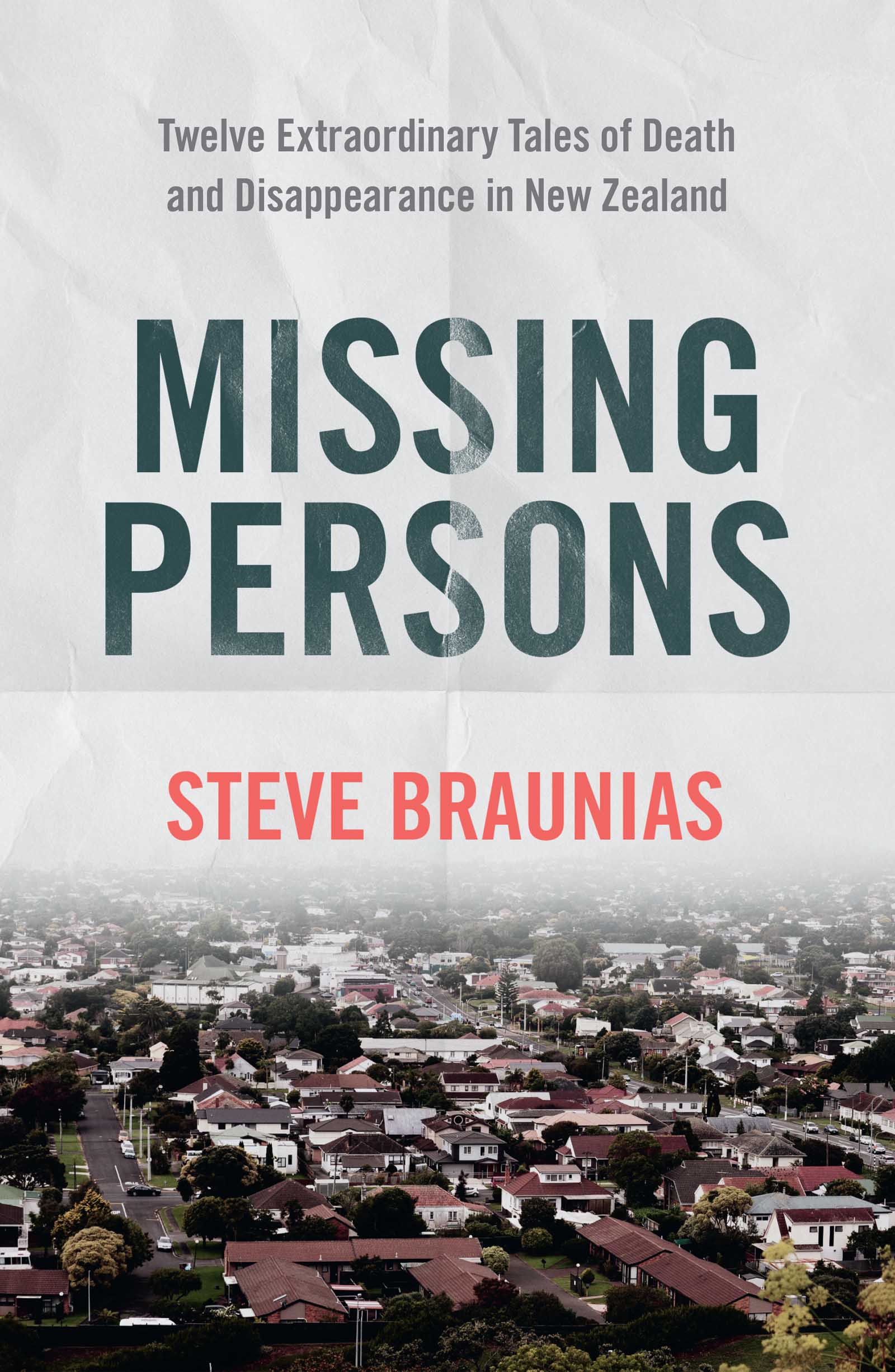
To Minka
The wind whistled in the street and the music ghosted
from the piano as leaves over a headstone...
Bruce Chatwin, In Patagonia
Of course the thing that made me want to write about the missing is that I thought of myself as missing, too, and was actually attracted to the idea of coming to a bad end. I had an image in mind that my life was narrowing to a point. I didnt know what that meant for a long time. Things are narrowing to a point! Id exclaim, and wonder what I was talking to myself about. It was when I started writing and thinking about the case of Murray Mason that I realised the obvious: the point that things were narrowing to was death. Ideally, a lonely death.
The last thing a journalist ought to do is identify with the struggles or agonies of others to the point where they feel an exquisite pain of their own, and think of the story as really being all about themselves. I wasnt quite that arrogant or insane. The struggles and agonies of Socksay Chansy, the nice guy born in a refugee camp who lay down and died next to an Auckland graveyard by the sea, and Nigel Peterson, whose sad story I wrote about after I saw a missing sign with his face on it on the road between Rotorua and Taup, and Murray Mason, a good Kiwi joker at the end of the bar who walked into the bush sometime after midnight and died in a shallow creek, were their own tragedies, and the tragedies of those who knew and loved them. But certainly their stories resonated. I almost felt envious. They had managed to disappear.
Things were getting on top of me. I was making other people unhappy. My personal life was a mess, I had an employment upset, there were health issues. The usual failings; plus old age, which for so long had felt like a rumour, was busy furnishing my life with intimations of mortality. Anyway, I took a special interest in reporting these stories of disappearance. I was a lost soul. Self-harm never crossed my mind I took no interest whatsoever in stories of suicide but the concept of wandering towards oblivion was very attractive. I thought of you as being very jolly, Emma Bovary says to the calculating Rodolphe in Flauberts great novel. He replies, Of course thats the impression I give: Ive learned to wear a mask of mockery... But manys the time Ive passed a cemetery in the moonlight and asked myself if I wouldnt be better off lying with the rest. Rodolphe didnt mean it. Probably I didnt mean it either. I lived for my little girl and would never do anything to let her down. The best I could do was gravitate towards the stories of people who had found the horror I was looking for.
A journalist is routinely afforded the privilege and honour of busting in on peoples lives at times of great distress. I sat in the living room of Sam Chansy, and he cried while talking about the death of his son. We were in Dannemora, in east Auckland. The houses were new, quite flash, a testament to hard work and the immigrants ambition. According to the 2013 census, 57.7 per cent of people in Dannemora were born overseas, and the most common birthplace was Asia; after English, the next most common language spoken in Dannemora was Yue.
I sat in the living room of Chris Peterson, and he cried with his ex-wife Eileen, Nigels mother, while they talked about the probable death of their son. We were in Whakatne, in the Bay of Plenty. Chris worked as a vet, Eileen wore the company shirt of her employer, the iconic agricultural supply firm PGG Wrightson. They were hard-working Kiwis, familiar with life on the farm. I suppose I identified with them more than I did with Sam, but in neither visit did I dare to identify with their grief. There were times during my two-hour interview with Chris and Eileen when the intensity of their loss and their bewilderment where was their boy, what had actually happened to him? was so strong that I had to fight very, very hard not to intrude on their grief and burst into tears. They didnt need that. They lived with their loss and bewilderment. I was in town for the morning.
Later that afternoon, in Rotorua, I followed in Nigels footsteps, from the top of the driveway of his home to the main street, Fenton Street, where the last absolutely positive sighting was made. It was a sad and wretched walk. It went beside a patch of scrub and a burning inferno of a mudpool; it steamed out of the bush, it was kind of grey, kind of brown, and the only barrier was a small wire fence that even a child could have stepped over. To walk into it would have been to die and to disappear for all time. Ahead was the turn-off towards Taup, and where possible sightings of Nigel were made. There were great dark forests of pine on either side of the highway. I walked along there, too, for a little while. Much further along was the sign of Nigel MISSING that I had seen the previous year, on a family holiday. Every two years we stayed in a strange little motel in Rotorua. We were travelling to Taup for the day. There and back, I noticed Nigels sign, gazed at his troubled face, and wondered what it meant, and who it was talking about; it led me to Chriss door. That holiday was our last as a family.
* * *
The fate of Nigel, Socksay and Murray were accidents and mysteries. Something intervened, and took them from life to death: bad luck.
When things start narrowing to a point, you start thinking that youve run out of road, run out of track; some bad end is inevitable. Murray Mason came to a bad end, and when his daughter and his ex-wife heard the news, neither of them was surprised. They had always just thought it would come down to something like that. It wasnt the fate Id assigned myself he was out of doors after midnight, stumbling through the Auckland Domain on a cold winters evening, in the rain; Im tucked up in bed most nights by 10 but certainly I imagined my own demise when I followed his story, and pieced together a smudgy, incomplete portrait of someone who was quite assiduous in not wanting to be followed, or pinned down.
We had certain things in common. Like Mason, I worked as a journalist at the Herald. Like Mason, I went everywhere on foot, and was a familiar perambulating sight around my neighbourhood. Like Mason, I took an active interest in English football results, read widely, and have been known to like a drink. I followed his footsteps on the night he died. I had a drank at the Albion hotel on Albert Street, and then walked through the city, emerging at the edge of the Domain. That was Masons journey. His last steps were taken when he stepped into the bush and down a row of steps onto a dirt path signposted as Lovers Walk. I found the little bridge he crawled beneath, saw the saplings he had flattered when he fell he ran out of track. It was so pretty: the sunlight, the gentle trickle of water, the smell of earth. But I was there in daylight. Mason had died at around midnight.
Our predicament, too, was as different as day and night. Mason had cut himself off from his family, created a new life, almost a new identity. He had taken things to extremes: he had cut his life in two, like a conjuror sawing his assistant in half. This must have taken some considerable courage and caused some considerable anguish. All I did with my life was drift in and out of unhappiness, and I stayed in one piece.
In my previous collection of crime writing, The Scene of The Crime, I reported on the murder of Tony Williams. He was a very good-looking Mori musician who went to the Gold Coast and enjoyed the good life. He enjoyed it too much: he crossed the wrong guy, and it cost him his life. But things had already taken a wrong turn. I wrote about him, The bachelor pad with the guitars and the surfing pictures, and the kids bedroom empty most of the week... This wasnt a cautionary tale of what happens when you chase a dream and the dream dies. The yellow brick road had nothing to do with it. This was just the road a mans life can take when none of his relationships work out.
Font size:
Interval:
Bookmark:
Similar books «Missing Persons»
Look at similar books to Missing Persons. We have selected literature similar in name and meaning in the hope of providing readers with more options to find new, interesting, not yet read works.
Discussion, reviews of the book Missing Persons and just readers' own opinions. Leave your comments, write what you think about the work, its meaning or the main characters. Specify what exactly you liked and what you didn't like, and why you think so.

